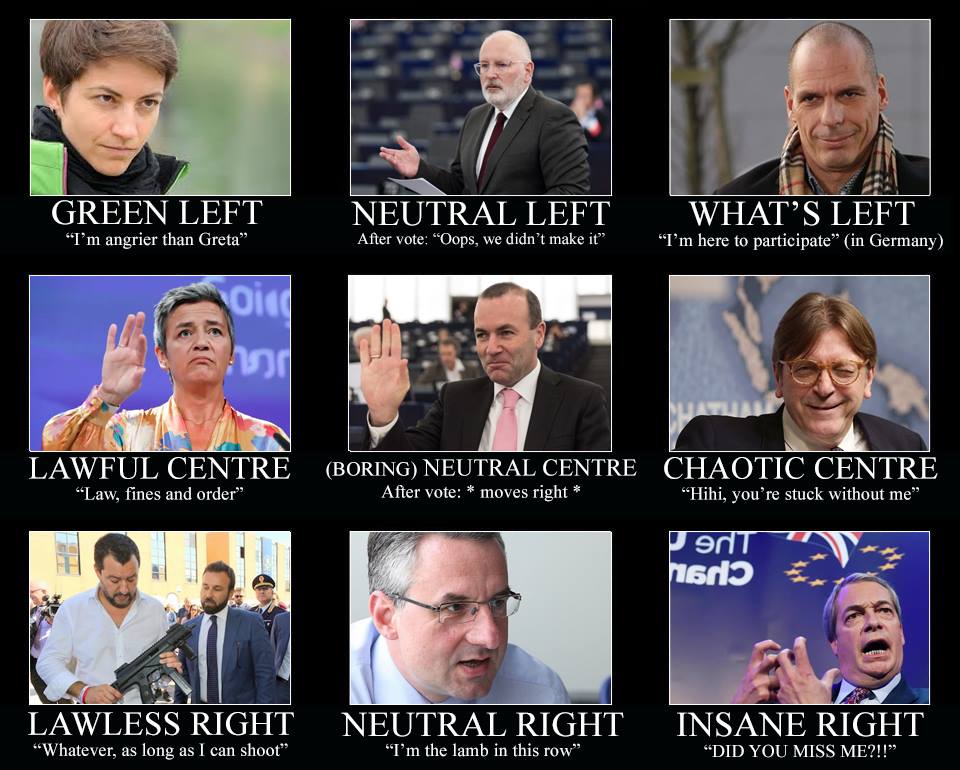Spitzenkandidat (German for lead candidate) indicates a person chosen by a certain political group of the European Parliament for the post of President of the European Commission. By extension, the plural of the word (spitzenkandidaten) indicates a forgotten system with which the European Parliament tried to limit the powers of the greedy member statesMember State (abbr. MS) is how eurocrats call a country which is part of the European Union. Clear writing guidelines recommend using EU country or EU countries instead, but some habits are hard to die. More. Jean-Claude Juncker, first in the name, was the only President chosen with such method.
The European CouncilThe Council of the European Union and The European Council have two things in common: the name and the fact that they represent the position of their member state's executive. To avoid confusion, we thought of grouping the two definitions in the same page: understanding by the context to which... More, in fact, never liked the Spitzenkandidaten method, because, according to the Treaties, nominating the Commission’s President is one of its powers. In this way member statesMember State (abbr. MS) is how eurocrats call a country which is part of the European Union. Clear writing guidelines recommend using EU country or EU countries instead, but some habits are hard to die. More have a say on who detains the executive power of the European Union.

The spitzenkandidaten idea was simple (so to say): the Political groups of the European Parliament would each nominate a candidate before the European elections. The candidate of the winning group, or the candidate supported by a majority of groups, would then become the President of the European Commission.
For example, in 2019 the candidate for the Socialists & Democrats was the Dutch Commissioner Frans Timmermans. If the socialists had won the majority of seats (ahahha), or if enough groups (e. g. Socialists & Democrats + Greens + Liberals) had supported him, he could have become President of the European Commission.
As everybody was expecting, though, the winning group was the European People’s Party, whose Spitzenkandidat was an unknown German MEPA Member of the European Parliament (abbr. MEP) is the living proof that eurocrats are elected by the people, as in every well-functioning democracy. They change every five years, which is more or less the time they need to get a basic idea of how the European Union works. They... More called Manfred Weber. Nobody, not even those who proposed him, wanted him to be President of the European Commission. This created a very fragile situation, because a coalition was ready to support Timmermans, even if his group didn’t win the elections.
The uncertainty following the results was the perfect situation to kill the Spitzenkandidaten: Macron and Orbán suggested former German Defense Minister Ursula von der Leyen, which was a good choice for Angela Merkel. Nobody knew her, but her father was a Director-General at the European Commission and she was born in BrusselsThe efficient Belgian administration Brussels (abbr. BRU, French: Bruxelles; Dutch: Brussel), officially the Brussels-Capital Region (French: Région de Bruxelles-Capitale; Dutch: Brussels Hoofdstedelijk Gewest), is a region of Belgium comprising 19 municipalities, including the City of Brussels, which is the capital of Belgium. The Brussels-Capital Region is located in the central... More: the perfect choice to show to European citizens that the EU is not run by unelected eurocratsThe term Eurocrat (from the combination of "European" and "bureaucrat") broadly indicates any official working for the European Union; it may have both a negative and a positive connotation, depending on who is speaking. In the EU-Bubble, for example, becoming a eurocrat means reaching a superior state of being, comparable... More.
The Parliament was quite annoyed by this decision, but then, with a majority of 9 votes, Ursula von der Leyen was elected President. The rest is history, as are spitzenkandidaten.
